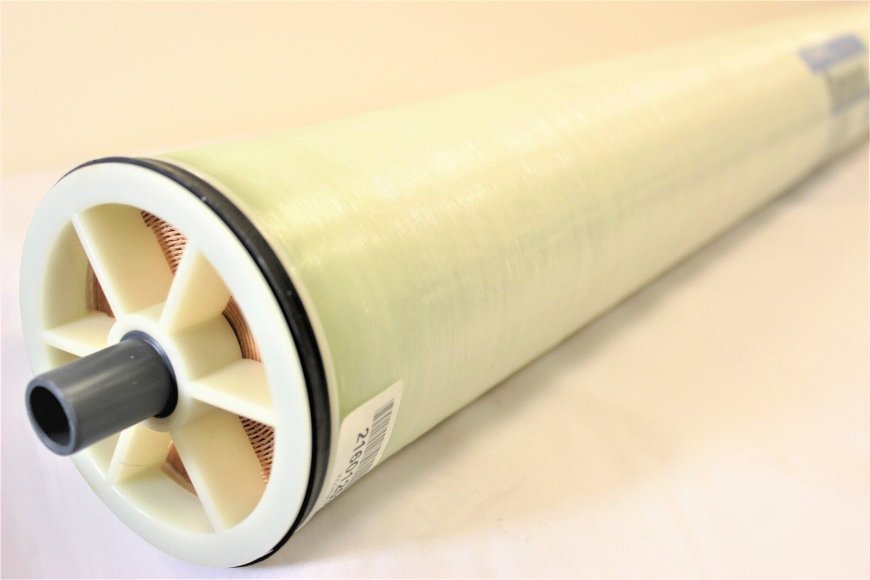Global Reverse Osmosis Membrane Market Expected to Witness High Growth Owing to Rising Application in Water Treatment Sector

The global reverse osmosis membrane market is primarily driven by growing freshwater demand across residential, commercial, industrial and municipal applications. Reverse osmosis utilizes a semipermeable membrane to remove ions, molecules and larger particles from drinking water and desalinates both brackish and sea water. Reverse osmosis provides clean and potable water at a lower cost than other purification techniques like distillation and offers operational and economic advantages over competing technologies.
The Global reverse osmosis membrane market is estimated to be valued at US$ 4.14 Bn in 2024 and is expected to exhibit a CAGR of 10% over the forecast period 2024 to 2031.
Key Takeaways
Key players operating in the global reverse osmosis membrane market are Alfa Laval, Axeon, Dupont Water Solutions, Hydramem, Hydranautics, KeenSen, Koch Separation Solutions, Lenntech, LG Chem, Mann+Hummel Water Fluid Solutions, Membranium, Merck, Pall Water, Parker Hannifin Corporation, Suez Water Technologies Solutions, Toray Industries, Inc., Toyobo Co. Ltd., Lenntech, Hi-Tech, Samco Technologies, Inc , Nitto Denko Corporation.
The key opportunities in the market include rising application in desalination plants across Middle East and Asia Pacific and increasing R&D investment by membrane manufacturers to develop advanced nano-filtration and ultrafiltration membranes.
Globally, the demand for reverse osmosis membranes is increasing across Middle East, Asia Pacific and North America driven by rapid industrialization, growing population and water scarcity. Countries like China, India, Saudi Arabia and UAE are focusing on developing large desalination plants to meet rising freshwater demand.
Market drivers
The major driver for the Global Reverse Osmosis Membrane Market Demand is the growing freshwater demand from the residential, industrial and commercial sectors. According to UN projections, over 1.8 billion people will be living in geographical areas experiencing absolute water scarcity by 2025. This is compelling various industries and municipalities to increasingly adopt desalination plants powered by reverse osmosis technology to cater to the rising demand. Other key drivers include stringent regulations regarding wastewater discharge and treatment across several countries and low total costs with reverse osmosis membranes compared to thermal desalination technologies.
PEST Analysis
Political: The growing demand for clean water and environmental regulations supporting water reuse and recycling are positively impacting the market. Stringent government regulations regarding industrial effluents are further driving the adoption of reverse osmosis membrane technology.
Economic: Investments in water infrastructure development projects and increasing installations of desalination plants due to freshwater scarcity are fueling market revenue growth. However, high capital costs can hinder wider adoption.
Social: Rising population and rapid urbanization are increasing the stress on water resources. The need for portable water ensures ongoing demand from the residential sector. Additionally, growing health concerns are raising the consumption of purified water.
Technological: Developments in membrane materials and module designs have enhanced permeation properties and productivity. The integration of artificial intelligence and IoT enables remote monitoring and diagnostics of membrane performance. Further innovations to reduce energy usage and costs will expand the application range.
Geographical regions of concentration:
The Asia Pacific region currently holds the largest share in the global reverse osmosis membrane market in terms of value. The growing population, industrialization, and water scarcity in countries like India and China are major demand generators. Membrane sales are expected to increase steadily to meet the needs of municipal drinking water and desalination projects in the developing nations.
Fastest growing region:
The Middle East and Africa is projected to be the fastest growing regional market over the forecast period. This accelerated growth can be attributed to extensive desalination activities due to an acute shortage of potable water sources in the region. Countries such as Saudi Arabia, United Arab Emirates, and South Africa are actively investing in seawater reverse osmosis plants to achieve long-term water sufficiency goals.
Get more Insights on Global Reverse Osmosis Membrane Market
Unlock More Insights—Explore the Report in the Language You Prefer
About Author:
Ravina Pandya, Content Writer, has a strong foothold in the market research industry. She specializes in writing well-researched articles from different industries, including food and beverages, information and technology, healthcare, chemical and materials, etc. (https://www.linkedin.com/in/ravina-pandya-1a3984191)












